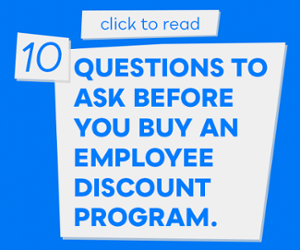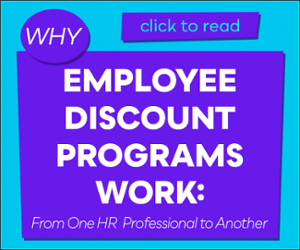This isn’t your dad’s workplace.
We all have a parent, or a grandparent, that spent their entire career with one company. They talked of putting in an honest day’s effort and receiving an honest day’s pay in exchange. The company took care of them, and when it was time to call it a career they got the golden watch and a warm send off.
That’s obviously not the case today. Modern working is evolving rapidly, and looks completely different than it did even ten years ago. The relationship between employers and employees is more mercenary than familial at many offices, and employee engagement isn’t great, to say the least.
Customers have responded in kind, unfortunately.
It’d be easy to take a cynical position and bemoan the current state of affairs, but we like to be more positive about things on this blog.
We think businesses are seeing the writing on the wall and realizing it’s mostly foul graffiti from disappointed customers. We see an ongoing shift to a more personal, customer-centric workplace that values the “people” within its walls - not just the “workers.”
As part of that shift, we’ve identified four major trends weaving their way through offices today.
Part of it is natural evolution, such as people getting more comfortable with social networking. But part of it is also a course correction, at least in the case of many businesses making a U-Turn on how many hours they want employees to put in.
Regardless, these are four positive trends that should have a good effect on employee engagement, and therefore customer engagement.
The Social Shift
A few years ago the big battle was whether employees of an organization should have access to social sites during working hours. Eventually most people recognized the futility of trying to block such access, as well as the benefits of having a socially-savvy team. Now only about a third of organizations are blocking employee access.
Now, many are taking their relationships with coworkers online. And not just LinkedIn, where we all put on our business personas.
70% of employees have “friended” their managers and coworkers on Facebook. Millennials in particular think relationships are going to help them advance in their careers and they’re very open to sharing personal details, including salary.
This transparency can be both good and bad. An actively disengaged (or recently terminated) employee can spread their particular unsavory emotions. But the positives, such as increased empathy, cohesion, feelings of connectedness - are huge.
In an organization that focuses on retention and keeping employees happy and engaged, this connectedness can only increase collaboration, positive engagement, as well as act a major recruiting tool.
Smartphones and the Return of the 40 Hour Work Week
Thanks in large part to smartphones, Americans are working longer than ever. Wherever the smartphone goes, so does work. At home, in the car, at church, in bed - we can’t help ourselves, and management isn’t really helping either.
According to one piece of research, smartphone-tethered employees are putting in 70+ hours a week.
We know now, for example, that productivity declines the further past 40 hours an employee works.
And 67% of employees say their management doesn’t encourage them to use their time off.
Not everyone is upset about this. Younger employees seem to have few qualms about working outside office hours. It’s representative of the kind of flexible arrangements they crave. That’ll change very quickly as they begin having families.
In the meantime, many companies are wisening up. I spoke of one recently that turns off its air conditioning at five, some are moving to four day workweeks, others are looking at six hour workdays.
In the long term, companies that help employees work smarter (not longer) will eventually see competitive advantages, increased engagement, and ultimately more satisfied customers.
Millennials, and Their Causes
Millennials have spurred many changes in their bull rush of the workforce, including strongly impacting the first two bullets in this list. Being good business citizens is one of their strongest imprints on the working culture.
This generation came of age in an era when a lot of corporate nastiness was being brought to light like never before. Enron, Lehman Bros, WorldCom all went down as the first wave of Millennials were about to graduate college. As a result, they have certain expectations about the companies they both purchase from and work for.
As a result, corporate social responsibility programs are now the norm. Charitable giving matching, PTO for volunteering...making a ton of money isn’t enough. 63% of Millennials like their employers to contribute to social or ethical causes, and 82% say it’s important to have a career that does some good in the world (sources, and more employee engagement stats here).
The Expansion of Benefits
The rapidly rising costs of benefits, specifically health, is a thorn in the side of many businesses. Employees feel the pain as well - four in 10 covered workers face at least a $1,000 deductible, almost double the amount from 2009.
As a result, benefits have become a major pivot point for employees. 74% of employees want better benefits, and 62% would be willing to leave their job to get them. But the days of gold watches and generous 401k matching are mostly gone - and in large part, the one-organization-for-life employee is gone as well.
It’s forced many companies to get creative, doubling down on incentives, corporate perks, flexible schedules, relaxed dress codes, and other high-value, cost-effective solutions.
There isn’t much an employer can do about the price of health benefits, but employees still demand coverage. The resulting creativity with fringe benefits is one positive side benefit of this - employers are now getting to know their employees’ wants and desires and customizing their benefits packages to those needs.
A Peek into the Crystal Ball
Obviously there are more than just four major shifts happening in workplaces today, but these four should particularly stand out as it relates to the human element - that is, the happiness levels and relationships of the people who comprise an organization.
The more companies are able to make their values known and put them into practice, the better engagement will be. As a result, customers will be more engaged and everyone wins. Things may look completely different five years from now (“We’ll all be contract employees!” “Robots will do all the work!” and so on…), but today, smart organizations are turning inward for growth and success.
The era of the gold watch retirement bash may be gone, but we may very well be entering a new era of personal engagement and values-centered leadership. That may be even better.





